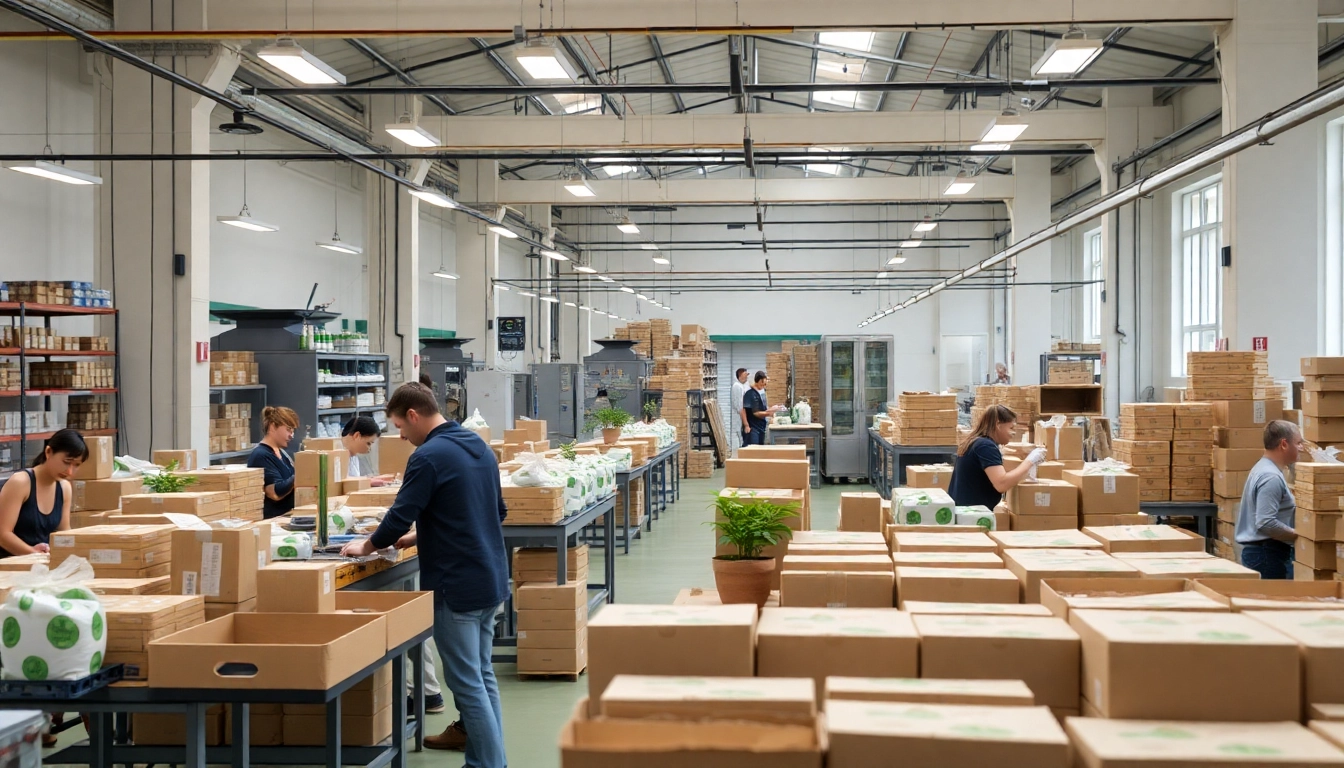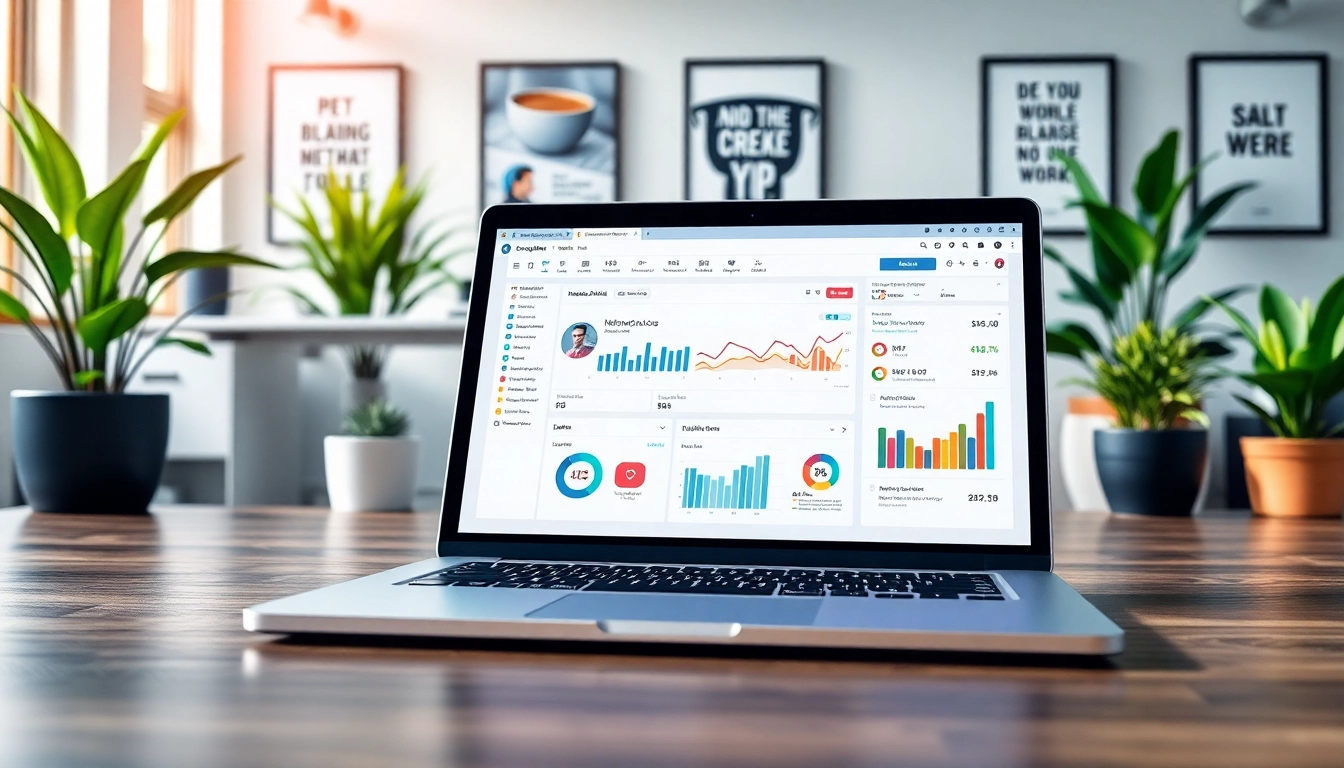Understanding Molded Pulp: An Overview
Molded pulp, often recognized as a revolution in sustainable packaging solutions, is making waves across various industries due to its eco-friendly characteristics and versatility. This packaging material is crafted from recycled paper fibers, providing a renewable alternative to traditional packaging options. As businesses increasingly seek to minimize their environmental footprint, the demand for molded pulp suppliers has surged. In this article, we will delve into the intricacies of molded pulp, its applications, benefits, and a comprehensive guide to sourcing from reputable suppliers.
What is Molded Pulp?
Molded pulp is produced by combining water with recycled paper or cardboard, creating a fibrous slurry. This slurry is then shaped into molds to form various types of packaging products, ranging from cushioning inserts to protective trays and containers. The process of making molded pulp is inherently sustainable, as it utilizes renewable resources and produces minimal waste. It is particularly valued for its ability to protect items during shipping and storage due to its excellent cushioning properties.
Applications in Various Industries
The applications of molded pulp are extensive and diverse. Below are some key industries where molded pulp plays a critical role:
- Consumer Electronics: Molded pulp is often used to create custom-fit packaging for electronic devices, ensuring they are well-protected during transportation.
- Food and Beverage: Many companies are opting for molded pulp trays and containers for packaging food items, benefiting from its biodegradable nature.
- Cosmetics and Personal Care: Luxury brands utilize molded pulp for packaging high-end products, enhancing the unboxing experience while being eco-conscious.
- Pharmaceuticals: Molded pulp packaging can cater to the stringent requirements for product safety and sterility in the pharmaceutical sector.
Benefits of Using Molded Pulp
The advantages of adopting molded pulp packaging are manifold, including:
- Environmental Sustainability: Made from recycled materials, molded pulp packaging reduces waste and promotes a circular economy.
- Customizability: Manufacturers can tailor the size and shape of molded pulp products to meet specific requirements, making it versatile for various applications.
- Cushioning and Protection: Its fiber structure provides excellent protection against impacts, ensuring that products arrive at their destinations intact.
- Cost-Effectiveness: In many cases, using molded pulp can reduce overall packaging costs, especially when considering the reduction in material waste.
Top Molded Pulp Suppliers in the Market
Criteria for Selecting Suppliers
Choosing the right molded pulp supplier is crucial for businesses looking to implement this sustainable packaging solution. Here are some key criteria to consider:
- Quality Standards: Suppliers should adhere to stringent quality assurance standards to ensure their products meet industry regulations.
- Sustainability Practices: It’s essential to partner with suppliers that prioritize environmentally sustainable practices in their manufacturing process.
- Customization Capabilities: The ability to provide custom solutions can greatly enhance the effectiveness of molded pulp packaging for specific products.
- Delivery and Scalability: Suppliers should have the capacity to meet varying order sizes and delivery timelines.
Notable Suppliers to Consider
Several reputable molded pulp suppliers are gaining recognition in the market. Below are a few notable names:
- Molded Fiber: A leading manufacturer specializing in sustainable molded pulp products made from 100% recycled paper.
- Pacific Pulp Molding, Inc: Offers biodegradable and compostable pulp solutions tailored for various applications.
- Keiding, Inc: Known for its capacity to quickly manufacture unique molded pulp parts for commercial and medical applications.
Regional Markets and Trends
The market for molded pulp is experiencing growth in various regions, influenced by factors such as consumer preferences, sustainability trends, and regulatory pressures. The United States and Europe are leading markets, with increasing demand for eco-friendly packaging solutions. Suppliers are adjusting their offerings to cater to these regional trends, with innovations in design and material efficiency.
Advantages of Choosing Sustainable Packaging Solutions
Eco-Friendly Manufacturing Processes
The manufacturing process of molded pulp is primarily eco-friendly. It utilizes fibers that would otherwise contribute to landfill waste, transforming them into valuable packaging materials. Many suppliers focus on enhancing this sustainability by employing energy-efficient machinery and processes, minimizing carbon footprints during production.
Cost-Effectiveness of Molded Pulp
While the initial cost of molded pulp may be competitive, the long-term savings come into play with reduced shipping costs, less material waste during production, and the potential for lower disposal fees due to its biodegradable nature. Companies that switch to this form of packaging often find it cost-effective in the broader context of their supply chain.
Consumer Preferences Shift Towards Sustainability
As consumer awareness regarding environmental issues rises, there is a growing preference for products that utilize sustainable packaging. Companies that adopt molded pulp solutions can enhance their brand image by aligning with these consumer values, potentially leading to increased loyalty and sales growth.
Best Practices for Sourcing Molded Pulp
Evaluating Supplier Capabilities
When sourcing molded pulp, it is essential to conduct thorough evaluations of potential suppliers. This can include visiting manufacturing sites, reviewing certifications, and requesting samples to assess the quality of their products. Engaging in discussions with their representatives can provide insights into their commitment to sustainability and product quality.
Understanding Material Recycling
Understanding the recycling process of molded pulp is crucial for companies aiming to implement a circular packaging solution. Collaborating closely with suppliers who can demonstrate a clear recycling path for their products can enhance the sustainability of a company’s operations.
Quality Assurance and Compliance
Ensuring that molded pulp suppliers adhere to quality assurance protocols is vital. Companies should look for supplier certifications that confirm their compliance with industry standards, such as ISO certifications, environmental certifications, and safety regulations, guaranteeing that the packaging is safe for its intended use.
Case Studies: Success Stories with Molded Pulp
Innovative Packaging Solutions in Action
Several companies have successfully integrated molded pulp into their packaging solutions, demonstrating its effectiveness:
For instance, a leading cosmetic brand adopted molded pulp trays for their product line, resulting in a 30% reduction in material waste compared to their previous plastic packaging. The shift not only enhanced their brand’s sustainability profile but also improved customer perception, as evidenced by positive feedback during product launches.
Feedback from Leading Brands
Positive feedback from companies that transitioned to molded pulp showcases its potential. Many report improved product protection and reduced returns due to damage during shipping. Consumer products companies have noted a rise in customer satisfaction linked to the environmental friendliness of the packaging.
Measuring Success and Impact
Success metrics for corporations leveraging molded pulp solutions include tracking reductions in carbon emissions, waste diversion rates, and enhanced consumer loyalty. Brands have reported not only meeting regulatory requirements but also exceeding consumer expectations by adopting sustainable practices.













Leave a Reply